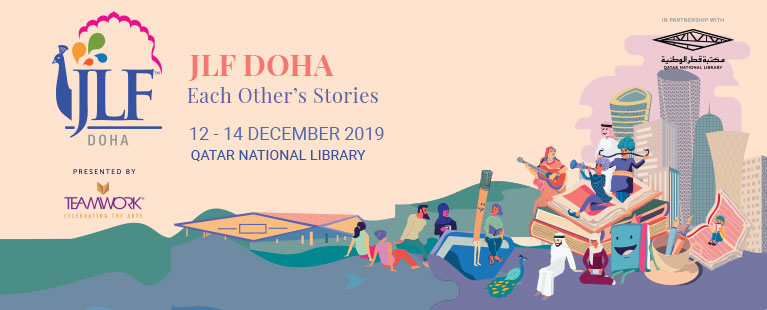


Ottolenghi’s Lockdown Kitchen – The Warmth of the Hearth
“I thought – what can I do that I know they are going to absolutely love – and I did this pot of chicken and pasta - all cooked in one pot. And I put it under the grill to get the pasta to crisp up, which reminds me of something my Dad used to make for me – crispy pasta.”
This was Yotam Ottolenghi responding to a question on what he is cooking for his children in this lockdown. And I am as surprised as I am unquestioning. Yes, of course he would cook a one-pot chicken and pasta dish for his boys that reminds him of his father’s cooking. So what if he is “the” Yotam Ottolenghi - owner of Ottolenghi in Notting Hill whose recipes grace the diningtables of the most elegant cooks of the world. Because the best dishes we eat are actually stories in our minds – smells and tastes that are memories of food.
Chatting with Ravinder Bhogal as part of #JLFLitFest’s Brave New World discussions, Yotam regales the audience with stories of food nostalgia, his Israeli heritage and how he is coping with the extended lockdown. I am as curious as anyone else listening in – what does the most innovative chef in the world eat for breakfast? His European parentage and the overwhelming Arab-Palestinian flavours that he tasted while growing up in Jerusalem seem to seep through in his reply. A German version of the bubble-and-squeak that his mother made – leftover potatoes, fried onions and sausages with egg or the Palestinian rice and lentil delicacy of majadra are popular breakfast dishes in his home.
“Anything hummus-related or an obsession with tahini have been the building blocks of my cuisine.”His book ‘Jerusalem’ is a mirror to his life so far – an adventure trail from being on the fast-tracked “genius programme” at Tel Aviv University, studying philosophy, to the coffee shops of Amsterdam where he escaped to complete writing his Master’s thesis and then abandoning it all to bring baked aubergines, za’tar and pomegranate seeds to British supper tables.
Yotam is not called a Philosopher Chef for nothing. Every recipe that he speaks of has a back story that is deep. His evocative descriptions of using lime powder to finish a roast chicken or Ethiopian sesame seeds that go into a perfect batch of tahini brings forth the storyteller in him. “Riveting life experiences through food will translate itself into good writing. So, first experience and then write,” he replies when asked if he has any tips for aspiring food-writers. “Your writing needs to overflow from inside, drawing from those experiences, don’t emulate someone else’s style.”
His forthcoming book on vegetarian cooking, ‘Flavours’,promises to be all these things – celebrating vegetables without making them taste like meat, but to be what they are.This vegetable whisperer talks about pairing produce into magical couplings. He talks enticingly about vegetable flavour bombs that the new book will have and then talks of a chilli renaissance. “You need just one chilli sauce or chilli oil in your pantry to elevate your cooking.”And then like the rest of the audience, who seem to be getting hungrier by the minute, judging from the comments that are coming up on my screen, he scribbles down Ravinder’s recipe of lime-pickle in butter over carrots. Clearly, the mark of a gourmand is to make a note of every nifty trick one can pick up at any point.
The chat meanders languidly into the realm of Negronis and wine from Montepulciano and I walk over to my kitchen to stir the lamb RoganJosh that’s simmering in its yoghurt sauce. As Yotam describes his yoghurt sauce I realise how wonderful it is that our rich global heritage allows us to connect a simple ingredient like yoghurt from Ottolenghi delis where its plated beautifully as an accompaniment to cauliflower fritters to my dinner menu.
While he describes his mother’s stuffed peppers, his son Max enchantingly photobombs the interview, hugging his father from behind, obviously wanting his attention. Almost on cue, my daughter comes from behind and rests her chin on my head, “Hey, who is the cute kid?” she asks. I am floored by this entangling of family at both ends of this global lockdown and it is so obvious suddenly, that what we cook and what we eat will always be a derivative of our inheritance and the warmth of our kitchen hearths.

Leave a comment